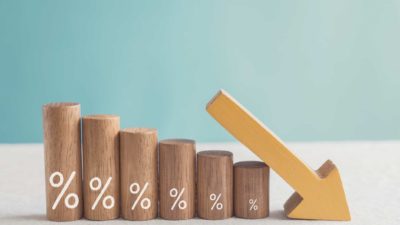It's been a pretty ordinary 2020. But Australian investors have every reason to be optimistic, according to multiple experts.
Notwithstanding the current COVID-19 resurgence in NSW, Commonwealth Bank of Australia (ASX: CBA) chief economist Stephen Halmarick said the country had dealt with it well.
"Australia has done a better job than just about any other nation in controlling the spread of the virus," he said.
"The human toll of the sharp rise in the unemployment rate has been very real. But the outlook for Australia is improving."
The coronavirus undoubtedly impacted financial markets and consumer confidence — but the effect ended up being less than originally feared.
2020 will still end up being the weakest year for the global economy since World War II. But according to Halmarick, good times will arrive next year.
"We do expect a solid recovery in 2021, with global growth forecasts at 5.2 per cent – led by the US and China."
BetaShares chief economist David Bassanese is also bullish for the coming year.
"We saw a collapse in earnings expectations earlier this year as the pandemic hit. However, earnings expectations have since held up remarkably well in recent months," he said.
"We are looking at 15 per cent growth in forward earnings by end [of] 2021 if current expectations hold up."
Australia has managed to avoid some potentially horrific outcomes triggered by the pandemic, reckons Bassanese.
"In terms of all the various scenarios we had prepared for, it's turning out that we have close to a best case scenario with a lot of positives to consider," he said.
"It's an encouraging backdrop as we head into 2021."
Reserve Bank can't easily back out now
The pandemic forced the federal and state governments to spend up big to avoid a potential economic calamity. The Reserve Bank of Australia (RBA) then chipped in with a near-zero cash rate and quantitative easing to cheaply finance all this spending.
This all adds up to a bizarre situation that Australia has never experienced before. But the RBA can't just back out now.
"It is going to be a long time before the RBA can retreat from providing significant support to the economy," said Halmarick.
"The recession, the rise in the unemployment rate, the global economic environment, and the expectation that inflation will remain below the 2 to 3 per cent target range for years, has seen monetary policy in Australia enter unconventional space for the very first time."
And this is all excellent news for share markets, said Bassanese.
"Central banks are promising to keep rates low for 1 to 2 years, which is supporting the economy and financial markets and also provides a ramp for equity prices."
The big risks in 2021
Both Bassanese and Halmarick pointed out the fortunes of and between the world's biggest economies, US and China, would be critical for 2021.
"In the US, there remains a number of political risks ahead," said Halmarick.
"But, assuming Joe Biden is sworn in as the 46th President of the United States on 20 January 2021, we expect him to focus on a few key policy priorities that should support the US economy throughout 2021 and beyond."
Thankfully, the trade embargoes China has placed on Australia so far have had minimal impact to the Australian economy, according to Bassanese.
He said the products most affected — beer, wine, barley and coal — only consist of 12% of exports to China and about 1% of the Australian gross domestic product.
"That said, an escalation of trade tensions is clearly one of the big risks for our economy heading into the new year."
Which shares will do best in 2021?
Bassanese predicted the recent resurgence of value shares would be short-lived.
"I see this as largely a temporary unwind of extra underperformance of value – and outperformance by technology – caused by the COVID shutdowns," he said.
"Once the dust settles next year, I suspect growth areas like technology will again reassert themselves."
On the ASX, Bassanese forecast that the finance sector was due for a comeback.
"We expect that resources and financials will do reasonably well over the coming months," he said.
"Although in terms of thematics, what we believe will outperform will be infrastructure as we get through the COVID-19 pandemic."









